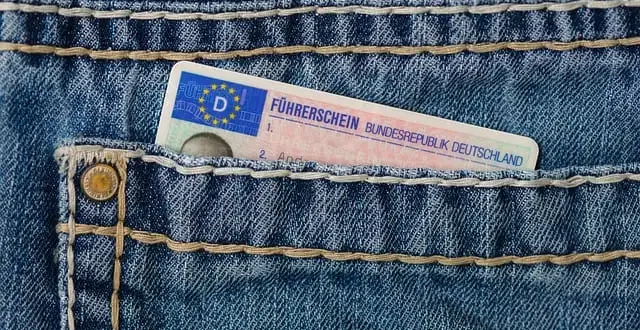Certificate of Entitlement vs British Passport – Imaxshift.com. In the landscape of UK immigration, two notable documents that grant individuals the privilege to live, work, or enter the UK without facing immigration restrictions are the Certificate of Entitlement and the British Passport. Each serves distinct purposes and comes with its own set of qualifications, underscoring the UK’s complex legal framework regarding citizenship and residency rights.
The Certificate of Entitlement verifies a person’s Right of Abode in the UK, meaning they can live or work in the UK without any immigration controls. This right is available to all British citizens and most Commonwealth citizens under specific conditions outlined by The Immigration Act 1971 and the British Nationality Act 1981. To be eligible, Commonwealth citizens must have had a parent who was a citizen of the UK and Colonies at the time of their birth or legal adoption, or they must have been married to a man with the Right of Abode before 1983. However, this certificate is a sticker placed in a valid non-British passport, serving as proof for UK immigration control and is not issued to those who already hold a British passport or a valid Certificate of Entitlement in another passport.
The British Passport, on the other hand, is a broader document affirming the holder’s British citizenship or, in some cases, the right of abode in the UK. It allows the holder to enter and leave the country freely, serving not only as a travel document but also as a powerful proof of identity and citizenship. Unlike the Certificate of Entitlement, a British passport is available only to British citizens and certain British subjects with the right of abode in the UK. The cost of obtaining a British passport is significantly lower than that of the Certificate of Entitlement, highlighting a practical consideration for those eligible to apply.
The nuances between these documents reflect the UK’s commitment to maintaining strict but fair immigration controls while recognizing the rights of Commonwealth citizens and British nationals. Legal advice and representation can be crucial in navigating the application process for either document, ensuring that all necessary criteria are met and the correct documentation is provided. Specialist immigration lawyers are equipped to handle such applications, emphasizing the importance of professional assistance in complex immigration matters.
This intricate balance of policies underscores the UK’s approach to immigration and citizenship, rooted in a rich history of Commonwealth relations and legal precedents. Whether seeking the Certificate of Entitlement or a British Passport, applicants are advised to thoroughly understand their eligibility and the responsibilities that come with each document, ensuring they make informed decisions about their status and rights within the UK.
Also Read : How Much Is Certificate of Entitlement In Singapore ?
Historical Context and Evolution of the Certificate of Entitlement and the British Passport
Understanding the historical development of the Certificate of Entitlement and the British Passport illuminates the complexities of the UK’s immigration laws and citizenship rights. Initially, British nationality law was straightforward, with most individuals born within the British Empire considered British subjects. However, as the Empire evolved into the Commonwealth, and immigration became a more pressing social and political issue, the UK’s approach to citizenship and residency rights underwent significant changes.
The British Nationality Act 1948 marked a pivotal moment, creating the status of “Citizen of the United Kingdom and Colonies” (CUKC) and distinguishing it from Commonwealth citizenship. This Act laid the groundwork for the more complex system of rights and documents that exists today, including the Certificate of Entitlement and the British Passport. Subsequent legislation, such as the Immigration Act 1971 and the British Nationality Act 1981, further refined the criteria for British citizenship and the right of abode, responding to changing societal needs and international relationships.
The Certificate of Entitlement’s introduction was particularly significant for Commonwealth citizens, offering a means to assert their right of abode in the UK. This was a crucial development, recognizing the enduring ties between the UK and Commonwealth countries while also addressing immigration control concerns.
Similarly, the evolution of the British Passport reflects broader shifts in national identity, international mobility, and security concerns. The transition from the old blue passport to the burgundy EU passport, and back to blue following Brexit, symbolizes the UK’s changing relationship with Europe and the world.
By exploring these historical developments, one gains insight into the current legal and social significance of the Certificate of Entitlement and the British Passport. This context helps to understand not just the documents themselves but also the broader narrative of British citizenship, immigration policy, and the UK’s place in a global community.
Also Read : How To Renew COE (Certificate of Entitlement) ?
Comparison with Other Key UK Immigration Documents
Certificate of Entitlement vs British Passport – Delving into the distinctions and similarities between the Certificate of Entitlement, the British Passport, and other pivotal UK immigration documents sheds light on the intricate landscape of UK immigration and citizenship rights. Each document serves specific purposes, caters to different categories of individuals, and provides varying rights and privileges.
- Indefinite Leave to Remain (ILR): ILR grants permission to live and work in the UK without time restrictions but does not confer British citizenship. Unlike the Certificate of Entitlement, which is specifically for individuals with a Right of Abode, or a British Passport, which asserts British citizenship, ILR is accessible to a broader range of migrants after meeting certain residency and eligibility requirements. ILR holders do not automatically have the right to enter and leave the UK freely and may lose their status after two years of continuous absence from the UK.
- UK Resident Card (Biometric Residence Permit): This card is evidence of the holder’s permission to stay in the UK for a specific period and may be required for non-EEA nationals living in the UK. Unlike the British Passport or Certificate of Entitlement, which are primarily concerned with the right of abode or citizenship, the UK Resident Card focuses on proving the holder’s immigration status and entitlements in the UK.
- EU Settlement Scheme (EUSS) Status: Post-Brexit, the EU Settlement Scheme was introduced for EEA and Swiss citizens residing in the UK, allowing them to apply for settled or pre-settled status. This status secures their rights to live, work, and access public services in the UK. The scheme is distinct from the Certificate of Entitlement and the British Passport as it specifically addresses the post-Brexit rights of EEA and Swiss citizens.
- British National (Overseas) Passport (BNO): This passport is for Hong Kong nationals who were British Overseas Territories citizens by virtue of a connection with Hong Kong before the 1997 handover. The BNO passport allows holders to visit the UK for six months without a visa but does not grant the automatic right to live or work in the UK, unlike the British Passport.
Understanding these distinctions is crucial for individuals navigating the UK’s immigration system, as each document provides different rights and privileges. The Certificate of Entitlement and the British Passport represent specific pathways within this system, emphasizing the nuanced approach the UK takes to citizenship, residency rights, and immigration control.
Certificate of Entitlement vs British Passport – Illustrating the application process for the Certificate of Entitlement and the British Passport through case studies or examples can offer practical insights and highlight the challenges individuals may face. These narratives serve to humanize the complex legal procedures and provide guidance to prospective applicants.
Case Study 1: Certificate of Entitlement Application
- Background: Jane, a Commonwealth citizen living in Canada, discovered her eligibility for the Certificate of Entitlement due to her father being born in the UK. Despite having a Canadian passport, Jane wished to explore work opportunities in the UK and sought the right of abode to facilitate her move.
- Process: Jane’s journey began with gathering the necessary documentation, including her father’s birth certificate and her legal adoption papers, to prove her eligibility. The process involved navigating the UK government’s website for application forms, paying the requisite fee, and submitting her application through the designated channel.
- Challenges: Jane encountered delays due to incomplete documentation and had to request additional records from UK archives. Moreover, understanding the specific legal language and requirements proved daunting without legal assistance.
- Outcome: After a six-month process and consultation with an immigration advisor, Jane received her Certificate of Entitlement. This document, affixed to her Canadian passport, allowed her to move to the UK and start her new job without facing immigration restrictions.
Case Study 2: British Passport Application
- Background: Michael, born in the UK to British parents, had never applied for a British Passport. As an adult, he planned to travel internationally and needed a passport.
- Process: Michael’s application process was straightforward. He applied online, uploading digital copies of his birth certificate and his parents’ British passports as proof of his citizenship. The fee was paid electronically, and he booked an appointment for his passport interview.
- Challenges: The primary challenge for Michael was the wait time for an interview slot and subsequent processing. Additionally, he needed to ensure his identification documents met the strict guidelines provided by the passport office.
- Outcome: Michael received his British Passport within three weeks of his interview. The passport not only served as his travel document but also as a definitive proof of his British citizenship, facilitating easy travel within the EU and beyond.
These case studies underscore the varying complexities and emotional aspects of applying for UK immigration documents. They highlight the importance of thorough preparation, the potential for unforeseen hurdles, and the relief and opportunities that come with successfully obtaining these crucial documents.
Global Comparisons of Citizenship and Residency Rights
Certificate of Entitlement vs British Passport – Exploring how the UK’s Certificate of Entitlement and British Passport compare with citizenship and residency documents in other countries offers valuable insights into international immigration policies. This comparison highlights the uniqueness of the UK’s approach and reveals common challenges and solutions in managing immigration and citizenship.
Comparison with the United States
U.S. Green Card vs. Certificate of Entitlement: The U.S. Green Card grants permanent residency in the United States, allowing holders to live and work indefinitely in the country, similar to the UK’s Certificate of Entitlement’s provision for the right of abode. However, the Green Card does not presuppose a familial or historical connection to the U.S., differing from the Certificate of Entitlement’s specific eligibility criteria related to Commonwealth citizens and British lineage.
U.S. Passport vs. British Passport: Both documents serve as proof of citizenship and are essential for international travel. However, the U.S. passport application process is generally streamlined for individuals born in the U.S., with less emphasis on the complex historical and Commonwealth connections that influence eligibility for a British Passport.
Comparison with Canada
Canadian Citizenship Certificate vs. British Passport: Canada’s Citizenship Certificate is similar to the British Passport in that it serves as proof of citizenship. However, the Canadian document is not a travel document but rather formal evidence of Canadian citizenship, primarily used to apply for a Canadian passport.
Permanent Resident Card vs. Certificate of Entitlement: Canada’s Permanent Resident Card is akin to the UK’s Certificate of Entitlement in that it allows individuals to reside and work in Canada. Unlike the Certificate of Entitlement, which confirms a right of abode specifically tied to British and Commonwealth citizenship, the Canadian PR Card is available to a broader range of international migrants.
Comparison with Australia
Australian Citizenship and the Right of Abode: Australia’s approach to citizenship and residency rights also stems from its Commonwealth heritage but has evolved to focus more on residency and integration criteria for citizenship. The Australian citizenship process emphasizes the importance of living in Australia for a specific period, contrasting with the UK’s Certificate of Entitlement, which can be based on ancestry or marriage before a certain date.
Australian Passport vs. British Passport: The Australian passport is similar to the British Passport in its international respect and the freedom it provides for travel. Both countries have stringent requirements for citizenship proof, although Australia’s system is less complicated by the historical nuances of the Commonwealth.
This global comparison underscores the diversity of approaches to citizenship and residency rights worldwide. While the UK’s system is deeply rooted in its Commonwealth history and legal tradition, other countries adopt more straightforward or residency-based criteria. Understanding these differences is crucial for individuals navigating international immigration and citizenship processes, as well as for policymakers seeking to refine and adapt immigration policies in a global context.
Also Read : How To Apply For International Driving License ?
Conclusion Certificate of Entitlement vs British Passport
In conclusion, the Certificate of Entitlement and the British Passport serve distinct purposes for individuals seeking to establish their rights to live in the UK. While the Certificate of Entitlement proves a person’s right to abode, allowing them to live or work in the UK without immigration restrictions, the British Passport offers a broader spectrum of privileges, including the right of abode, international travel, and consular protection abroad.
Choosing between them depends on one’s specific circumstances, eligibility, and long-term intentions. Both documents are crucial for those looking to solidify their legal status and enjoy the benefits of residing in the UK, but understanding the differences and application requirements is key to making an informed decision.
Also Read : COE Price History Chart
 Imaxshift.com : Insurance, Finance, Technology & Gadget Blog
Imaxshift.com : Insurance, Finance, Technology & Gadget Blog



